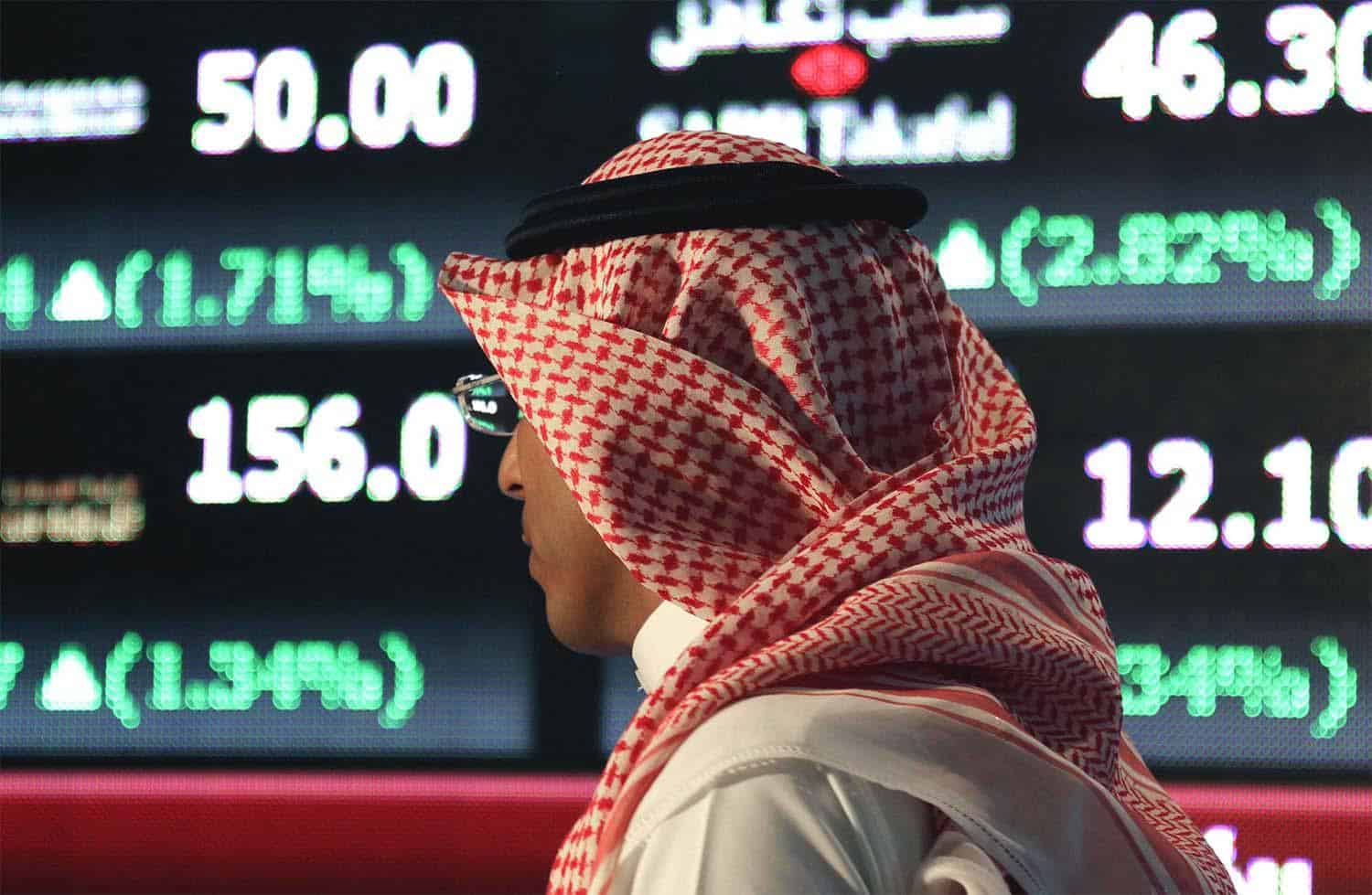Dubai, UAE— The Gulf markets fell at the beginning of their weekly trading due to the decline in crude oil prices, which is a significant catalyst for the GCC financial markets, amid fears that the increasing Covid-19 infections in China, the largest oil importer, will reduce demand.
The UAE stocks ended their weekly trading on a decline, and the Dubai index recorded a weekly decrease of 1.4 percent. In comparison, the Abu Dhabi index recorded a weekly gain of 0.6 percent, with the increase of the International Holding Company, the company with the highest value, by 0.6 percent.
On the other side, the Saudi index “TASI” fell for the sixth week in a row, this time by 1.8 percent.
Tassi ends the trade lower
Shares of Al-Rajhi Bank dropped 1.2 percent, and claims of the National Bank of Saudi Arabia fell 1.7 percent on Sunday (November 20, 2022), causing a 0.8 percent drop in the Saudi Index.
It fell further on Monday (November 21, 2022), by 1.1 percent, to 10,930.5 points, as oil prices hit near their lowest levels in two months on worries about China’s fuel consumption and the dollar’s strength. The Saudi oil company Aramco dropped 1.6 percent, Maaden dropped 1.8 percent, and SABIC dropped 2.1 percent. Shares of Al-Rajhi Bank fell 0.4 percent, Riyad Bank 0.3 percent, and the National Bank of Saudi Arabia dropped 1.9 percent.
Conversely, on Tuesday (November 22, 2022), the main Index, TASI, gained by 0.3 percent, assisted by a 3.6 percent increase in Banque Saudi Fransi and a 0.9 percent increase in shares of Aramco due to rising global crude prices.
Following royal orders, the Saudi Stock Exchange suspended trade on Wednesday (November 23, 2022) to celebrate the national team’s World Cup triumph over Argentina.
On Thursday (November 24, 2022), the market dropped 0.2 percent due to losses in Dr. Sulaiman Al Habib Group (-4.7 percent) and RETAL for Urban Development (-1.5 percent).
The Abu Dhabi index ended trading lower
The Abu Dhabi index closed down 0.6 percent on Monday (November 21, 2022) and continued to decline on Tuesday (November 22, 2022), down 0.1 percent.
This past Wednesday (November 23, 2022) saw a 1.3 percent increase in the primary index of the Abu Dhabi market, with the International Holding Company’s stake contributing to this increase by 1.7 percent.
On Thursday (November 24, 2022), the index rose by 0.1 percent, supported by a 0.8 percent increase in the country’s largest bank, First Abu Dhabi Bank.
The Abu Dhabi stock market index ended the week down 0.1 percent, with the First Abu Dhabi Bank falling 0.2 percent.
Dubai withdraws under the banks’ pressure
As a result of Emaar Properties’ 0.8 percent decline on Monday (November 21, 2022), the Dubai index was down by 0.4 percent overall. Likewise, the 0.9 percent decline in Dubai Islamic Bank on (Tuesday, November 22, 2022), contributed to a 0.3 percent decline in the broader index.
As a result of Emaar Properties’ 1 percent drop on Wednesday (November 23, 2022), the Dubai Market Index fell by 0.1 percent. At the same time, the index showed no change at the close of trading on Thursday (November 24, 2022).
The main Index in Dubai declined by 0.6 percent on Friday (November 25, 2022) as a result of losses in Emaar Properties (-2.3 percent) and Emirates NBD (-0.4 percent).

